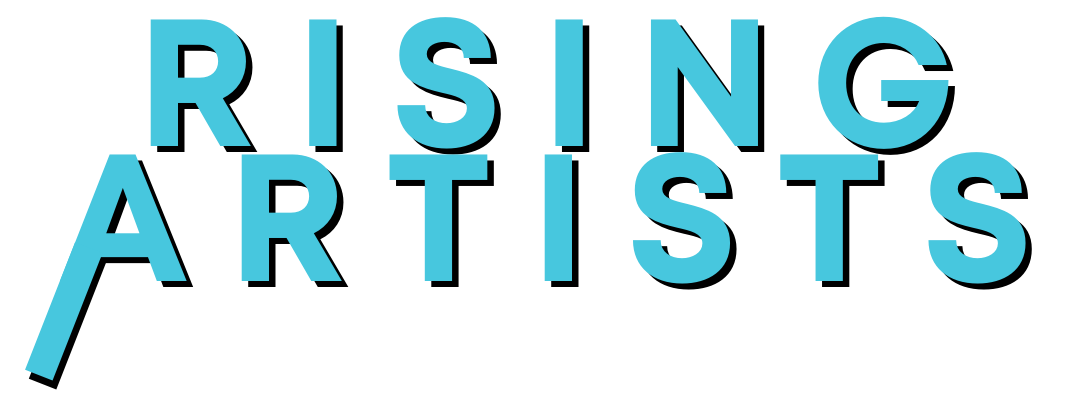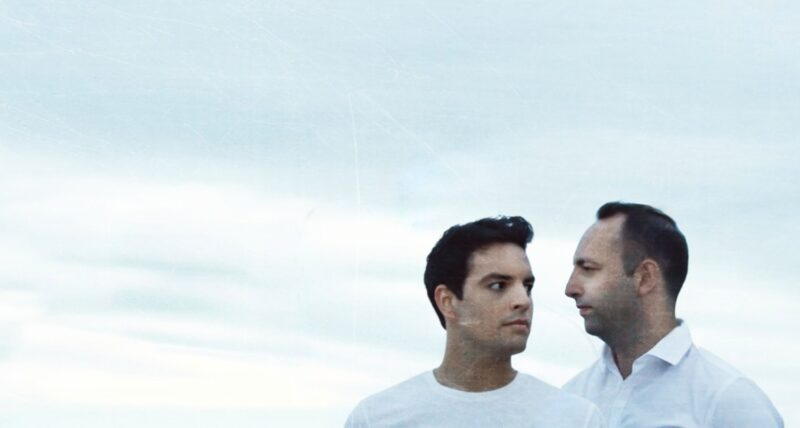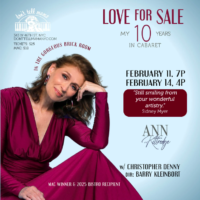Q: I love “See you in the Morning” and the perspective you did it in. I know you wrote it about the Tempe train crash, and I wonder what your goal was with creating the song.
GREEK BROTHERS: I live in the UK, but I grew up in a Greek diaspora household, so I still have a strong connection to Greece. A lot of the news and media I consume is Greek. I remember the news about the crash came out quite late at night. I was just scrolling through and thinking, “Oh, this is pretty bad.”
It wasn’t until the next morning, on my way to work, that it really hit me. I was on a train reading about the crash, and it felt strange — I started to feel this sense of guilt. These people’s lives had been cut short, and I hadn’t really been making the most of mine. I started to think, “Oh god, what if this train was that train?” You suddenly think about everything you haven’t done in your life — the relationships you’ve neglected, friends you’ve lost touch with, the people you’ve let down. And you wonder: what if you never get the chance to make amends?
That’s where the idea for the song came from. I imagined a character on a train, reflecting on his life — how disappointed he is with himself, but also how he’s decided to make a change. Of course, the irony is that he’s on a train that’s about to crash.
That might not come through in the song in such a direct way, but in my mind, that was the story the whole time. While the lyrics don’t spell it out, you do get this image of someone on a train, thinking about their life… It’s about reflection.
Often, when I’m on a train or a plane, especially on a long journey alone, I tend to reflect on things — regrets, things I wish I’d said or done differently. Just mundane stuff. But then, when something catastrophic happens — something completely unexpected — it throws those everyday thoughts into a whole new light. That’s the idea I was working with.
At the end of the song, the chorus — “Lucky that I caught the train… if I get in late, I’ll see you in the morning” — comes from the real-life text messages people sent just before the crash. A lot of them were ordinary messages like, “I’ll call you when I arrive at the station,” or “I’ll see you in the morning.” And, of course, the train never got there.
That idea stuck with me — how often our last words to someone are so everyday. You don’t realize they might be the last conversation you ever have. So yeah, maybe I make it sound a bit darker than it is… It’s actually set to quite a jolly tune.
Q: You said you felt guilty about being on the train and making it to your destination while others didn’t on the day of the tragic accident. What do you think the song does for you?
GB: I think about how maybe I’ve taken life for granted, you know? Yeah. Some days, I try to be more mindful — but only ever from a distance. So I ask myself: have I really given life the effort it deserves?
I had the window seat, so… yeah. I’ve been coasting. I’ve often been in a comfortable position, and I wonder — have I really done myself justice with all the opportunities I’ve had? With this amazing thing that is life, especially when others have had it taken away?
In terms of what writing this song has done for me, I think it’s made me more aware of that. I didn’t set out to write a song from this angle. It wasn’t a calculated choice or anything — it just came about naturally.
And I think this is the first thing I’ve written that feels as genuine as it does. I’ve written a lot of songs before — party songs, sad songs — but I was often more focused on making things rhyme or fit a structure. This one feels different. It feels like it’s really saying something, and it’s something I can stand by.
Q: I was taken aback by how you wrote it from the perspective of a passenger. Typically, when people write about or are inspired by tragic events, they usually write about them. It’s not in the perspective of anyone, but they write about the tragedy. How did that idea come about?
GB: I was traveling on a train in the morning, and that’s often when I do most of my thinking. So while I wasn’t on that particular train, a lot of the song is told from that perspective, because it’s a space I’m often in.
That’s how the idea came about. The character — this passenger on a train — is fictional, but he’s based heavily on feelings and thoughts I’ve had myself.
It’s the irony… Sometimes, when you catch a train or a plane, you think, “Oh, lucky me — I made it just in time.” You know? Like, “Lucky the traffic was good,” and that meant you could make your connection.
But sometimes fate flips that on its head. What seems lucky or unlucky in the moment can actually work out in surprising ways. Maybe you’re stuck in traffic, you’re late for work, but then you bump into someone else who’s also running late, and that meeting sparks a relationship that ends up changing your life.
In this case, though, the really tragic irony is that he felt lucky to have caught the train, but actually, that was the worst thing that could have happened to him. It’s just that idea… You never really know how the universe works.
Q: I wouldn’t say it’s a risk, but were you two terrified of how people would think when hearing the song and what inspired it?
GB: So things have really… I mean, I wrote this probably around May — that’s when I finished writing it. But in the last couple of months, especially recently, the news and public attention around Tempe and the train crash have really ramped up. Emotions have peaked this past week in a way I wasn’t expecting.
What I’ve been more concerned about this week is how people might interpret the verses, maybe thinking I’m referencing a specific passenger who was actually on the train. Or that lines like “some days I try” might seem like I’m trying to portray someone in particular. That wasn’t the intention at all.
Interestingly, no one’s really mentioned the “lucky” line, if I’m honest. I think maybe, in the context of the whole song — especially when paired with “I’ll see you in the morning” — those two lines together create a picture of a conversation, maybe between someone and their partner or a relative. You know?
There’ve been so many times I’ve called home to say, “I caught the train,” or “It’s running late.” I took it from there — that everyday moment — and didn’t think too much of it at the time.
Q: I do want to know if “See You in the Morning” will be a part of an album or EP.
GB: So we do have an official EP — and let’s see — but what it definitely marks is the beginning of a run of songs we’ll be releasing that share a similar sound and arrangement. They lean much more toward traditional Greek rhythms and song structures.
Previously, we were doing more of what you’d call Western pop-rock, with touches of Greek instrumentation here and there. But with this project, we’ve definitely leaned much more into the Greek side of things.
And people have responded really well to it. It also just felt more natural for us — recording in that style came together more easily than before. So that’s definitely the direction we’ll be taking with the next four or five releases we’ve got planned.
Yeah, they’ll be much more Greek in sound. The idea behind the project is to create something that resonates with the Greek diaspora — maybe second or third generation. I know places like the U.S., Australia, and parts of Europe have big Greek communities, but many people there might not speak the language fluently anymore because they’re a few generations in.
So we thought: what if we reimagined Greek music in English? That way, it becomes more accessible to them — something they can connect with more easily. And at the same time, it opens the door for people who aren’t familiar with Greek music at all. They might discover something new and be introduced to Greek musicians and culture in a fresh way.
That’s the vision we’re working with, and it’s what we’re running with throughout 2025.
Q: Some songs that are tributes to tragic events are hard for me to listen to because they’re so emotionally heavy. But this one doesn’t really fall into that category for me because it stimulates the mind, for me. The Greek influence has a lot to do with it. It was incredible.
GB: To keep everything super simple — that was the goal. On the Suzuki, there were loads of runs and drills that Alex had put in, and we actually ended up taking most of them out. We realized they were distracting from the feel we’d created — this really nice, minimalistic vibe. So we stripped a lot of it back and only left a few elements in at the end.
The minimalist arrangement definitely made things easier to record, because it’s actually much closer to how we usually play — in small setups, with acoustic instruments. It felt more natural compared to other times when we’ve tried to layer 70 or 80 different instruments. This time, it was simpler, and it worked.
What we definitely did was focus on every single element. Since we had fewer than 10 instruments in the mix, we could really pay attention to each one — the levels, how and when each part comes in or fades out, making sure everything was exactly where we wanted it to be. That was really nice.
Q: What do you want your listeners to take from listening to “See You in the Morning”?
GB: For me, the sad thing in the song is really about not making the most of life. So if that message comes across — if people listen to it and, maybe indirectly, it inspires them to do something — that would be really nice.
Like, maybe they call up an old friend they lost touch with, make plans to meet, or just try a bit harder with some of their relationships or the things they want from life. That would be cool.
But if all it does is give someone a nice, chill three minutes — if they just enjoy it like you did — then hey, that’s also a win.
Q: What do the Greek Brothers do outside of making music? Hobbies-wise.
GB: We’re huge basketball fans — have been since we were kids. We watch the Milwaukee Bucks, of course.
Even when Giannis plays at 3 AM UK time, we’ll stay up to watch. We also love to travel. I’m actually heading to Memphis next week to visit a friend.
I’ve heard about chicken and waffles — a waffle with fried chicken and maple syrup for breakfast. Sounds insane, and we’re definitely excited to try it.
Hope you enjoy those chicken and waffles, Greek Brothers!
Interviewed by Taylor Berry
FOLLOW GREEK BROTHERS:













